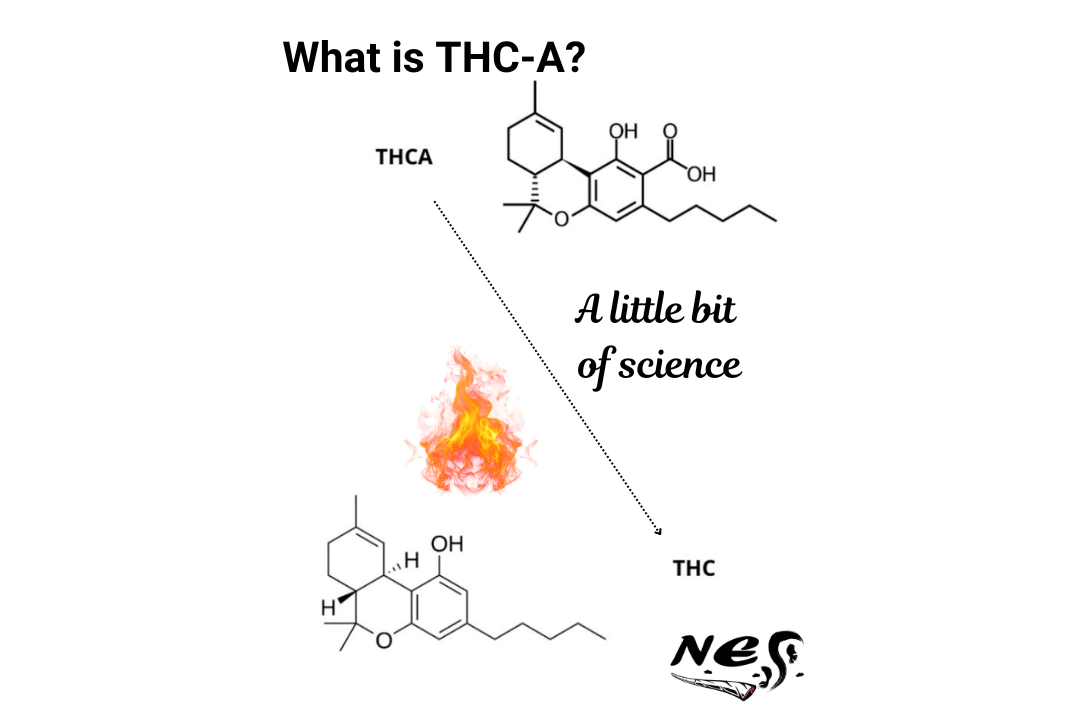
What is THC-a???
Share
In the realm of cannabis, THC (tetrahydrocannabinol) often steals the spotlight, but lurking in its shadow lies another potent compound: THC-a (tetrahydrocannabinolic acid). THC-a, the precursor to THC, has been gaining attention for its potential therapeutic benefits and unique properties. Let's delve deeper into what THC-a is, its effects, legality, various forms, and its growing significance in the cannabis world.
Effects
Unlike its counterpart THC, THC-a is:
- non-psychoactive - meaning it doesn't induce the "high" typically associated with cannabis consumption. Instead, it
- offers a range of potential therapeutic effects - anti-inflammatory, neuroprotective, and antiemetic properties.
- alleviate symptoms associated with conditions such as nausea, epilepsy, and autoimmune diseases, making it a promising avenue for medical exploration.
THC-a in its raw form is almost harmless, and most products, like herbs for instance, that are consumed would have no effects besides causing an upset stomach. You have to put the THC-a product through extreme heat to achieve psychoactive effects.
Legality
In Texas, where the "N.E.S." team is located, cannabis laws have traditionally been strict:
and the legality of THC-a remains in a sorta gray area. THC-a products that have not been "consumed" yet are legal with proper documentation (COAs/receipt) but, once the product has been converted through the process it may be subject to legal ambiguity especially if you are operating a vehicle/firearm. As laws continue to evolve, consumers need to stay informed about the legal status of THC-a in their respective regions. Especially in areas that are not recreational legal
THC-a can be found in various forms from:
- Traditional flower grown indoor in optimal settings
- edibles infused with high potency
- concentrates for high potency and flavors
- vapes for concentrates on the go
Conclusion
As our understanding of cannabis compounds deepens, THC-a emerges as a compelling player in the therapeutic landscape. With its non-psychoactive nature and potential health benefits, THC-a represents a promising avenue for medical research and exploration. While its legality and availability may vary by the area you live in, the growing interest in THC-a underscores the need for continued research and education in the realm of cannabis science. Whether for medicinal or recreational purposes, THC-a offers a glimpse into the diverse potential of the cannabis plant, inviting further investigation into its effects and applications.

